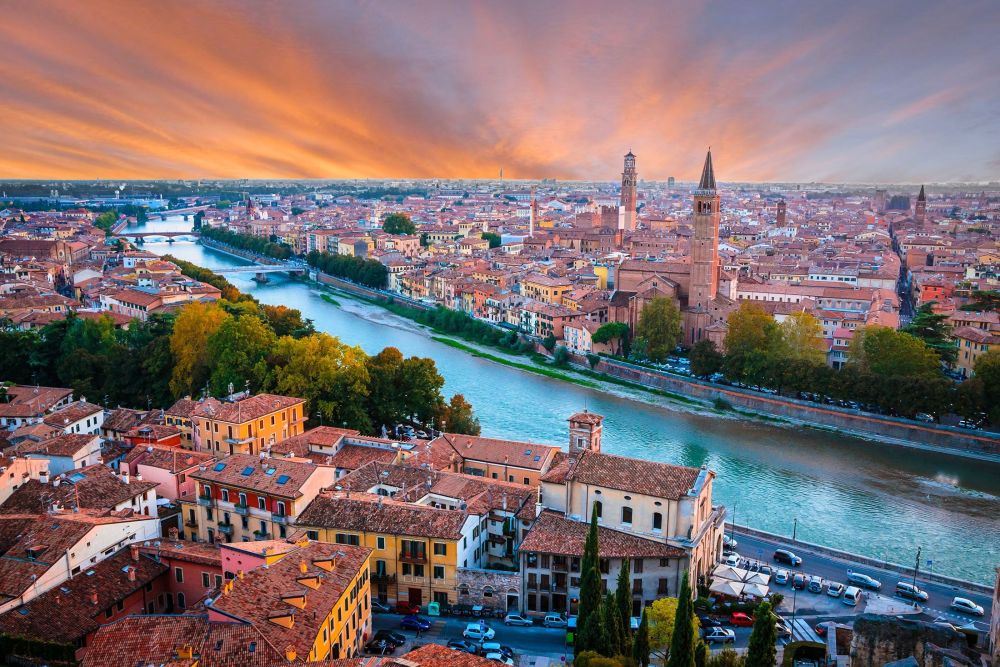

The charming city of Verona, nestled in the Veneto region of northern Italy, is a place where history, culture, and romance intermingle. Known as the setting for Shakespeare's tragedy, "Romeo and Juliet," Verona has long captured the imaginations of visitors from around the world.
Tourism in Verona dates back to the 18th century when the European elite embarked on the Grand Tour, a traditional trip of Europe undertaken by mainly upper-class European young men of sufficient means and rank. Verona became an essential stop due to its rich array of Roman monuments, including the well-preserved Verona Arena, a colossal amphitheatre that today hosts operatic performances.
In the 19th and early 20th centuries, Verona became increasingly known for its artistic and cultural heritage. Tourists flocked to visit the city's historic centre, a UNESCO World Heritage Site, which boasts a collection of Renaissance architecture, medieval castles, and ancient churches. The fascination with the city's link to "Romeo and Juliet" also grew, particularly with the promotion of sites like Juliet's balcony, which began to draw more romantics and literature enthusiasts.
In the 21st century, Verona has become an exemplary model of balancing historic preservation with modern tourism. With the rise of experiential travel, tourists now seek to immerse themselves in the local culture, participating in wine tastings in the Valpolicella region and enjoying opera performances in the Arena.
Sustainable Tourism Initiatives have been at the forefront of Verona's tourism strategy, aiming to protect its cultural and historical assets while showcasing them to visitors in a responsible way. This includes managing the influx of tourists to reduce the impact on the city's infrastructure and local life.
Verona's event calendar is rich and varied, with the summer opera festival at the Arena di Verona being a significant draw. The Vinitaly wine exhibition is another key event that attracts wine professionals and aficionados from around the globe.
Recently, there has been a trend towards digital and mobile engagement in Verona's tourism, with virtual reality experiences allowing visitors to see ancient Verona as it once was, supplementing the real-world experience with enhanced learning and interaction.
Culinary tourism has also seen a rise, with cooking classes and food tours becoming popular ways for visitors to taste and learn about Veronese cuisine, blending gastronomic pleasures with cultural discovery.
Verona continues to be a beacon of Italian culture and history, with tourism adapting over the centuries to meet the desires of diverse travelers. Whether through the embrace of digital innovations, commitment to sustainability, or the continuous celebration of its legendary tales, Verona remains a beloved destination, offering a unique journey through time and imagination.